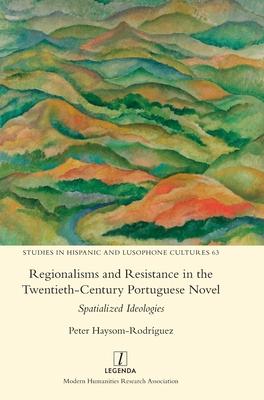Often regarded as a small and homogeneous country, modern Portugal has frequently displayed clear regional tensions, on several 'axes': between its capital, Lisbon, and more neglected cities and towns; between its developed coastline and its (noticeably declining) inland villages; between the relatively conservative small-holding communities of the North and the politically radical tenant farmers of the South, amongst others. Examining twentieth-century novelists' treatment of such geographical precepts leads one to ponder: what relationships exist between ideology and (regional) spaces? Through analysis of narrative fiction, how can one better comprehend the complex geographical grievances and identity politics that are increasingly characterising ideo-logical discourses across Western nations? The novels of Aquilino Ribeiro (1885-1963), Agustina Bessa-Lus (1922-2019), Ldia Jorge (1946-) and Jos Saramago (1922-2010) all have their part to play, in this quest for greater understanding of Portuguese regionalisms and resistances.
Peter Haysom-Rodrguez is a Lecturer in Modern Languages at the University of Leeds. He holds a Ph.D. in Portuguese & Lusophone Studies from the University of Nottingham.
